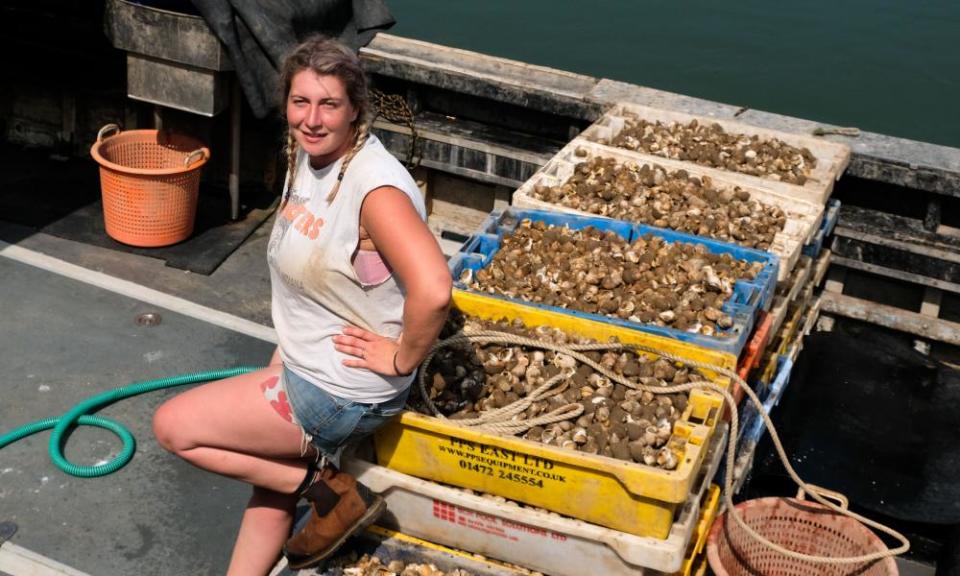‘A huge achievement’: first woman wins UK’s Fisherman of the Year

Being a woman in the male-dominated fishing industry has presented some challenges for Ashley Mullenger, who has become the first woman to win a Fisherman of the Year award.
“It’s little things like the ankle cut on the boots we wear – for men it’s wider and you need to have good ankle support on a boat when you’re working on a moving deck. It took me a while to find boots suitable for commercial fishing and for women,” she says.
Lifejackets are also an issue. “I’m quite heavy chested, so once I’ve got oil skins on and lifejacket on top, I can be quite restricted. I’d love to see a woman-owned company tackle that.”
But ultimately she doesn’t think being a woman has held her back, and she prefers to be known as a “fisherman” over more gender neutral terms.
Mullenger gave up her office job three years ago to become a commercial fisher and now spends her days off the coast of Norfolk catching whelk.
She launched her Instagram channel – the Fmale Fisherman – as a way of trying to engage the general public in the industry and educate people about where their food comes from. Its success was a key factor behind her award win.
Mullenger took home the prize in the under-10-metre (boat size) category, with the award description stating it was looking for someone “who has demonstrated skill, determination, leadership ability and adaptability to change”.
“It was a huge achievement just to be nominated, which means you’ve been recognised by someone else in the industry as being a credible fisherman. Lord, if it was worked out on how much you catch, I wouldn’t have been in with a sniff,” she says.
“But it’s more than that, it’s about the time that you give, the image for the industry you’re setting. I do try my absolute hardest to get the industry as much good news as possible.”
Fellow female fisher Isla Gale, from the Isle of Man, won Trainee of the Year at the awards.
For Mullenger, it is the unknown of each day that makes the job so exciting. “The environment is ever changeable. Sometimes it can be a lovely day – right now I’m sat out in the sun gently being rocked. Some days it’s a bit fierce out here, but it puts the air back into your lungs,” she says.
“There’s also something also about using the strength of your body, having to rely on your arms, your legs, your back, to earn your living, which is invigorating in itself.” Mullenger says the physicality of the job has never held her back, and she has never been pushed beyond her capabilities.
She is passionate about encouraging young people into the industry, which has historically struggled with recruitment. “It’s just not pushed in schools as a career option,” she says.
A commercial fishing apprenticeship that launched this year is a welcome addition, she says, but is still confined to a few providers in the south-west. “I’d love to go into schools and talk to young people about what I do, and hope they consider it for the future.
“The problem is, if they say: ‘Yeah, I really love that idea and I would really like to do that,’ then what do I say to them? It’s a really hard industry to get into and I just think there’s so much more that could be done.”
Mullenger hopes that by speaking up about her life at sea she will challenge misconceptions that it isn’t suitable for women.
“There are some really important conversations that need to happen in this industry,” she says. “Recruitment into the industry in itself, it struggles to recruit historically, always has. Let’s push the fact that this is an industry that is suitable for women as well as men.”

 Yahoo Finance
Yahoo Finance 